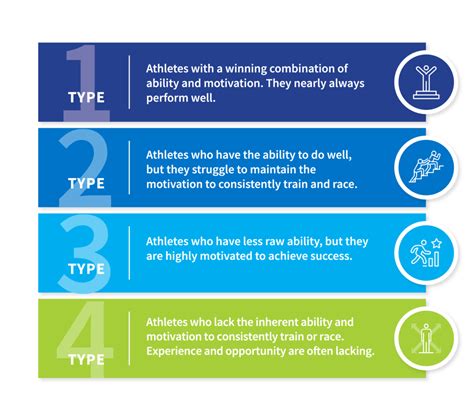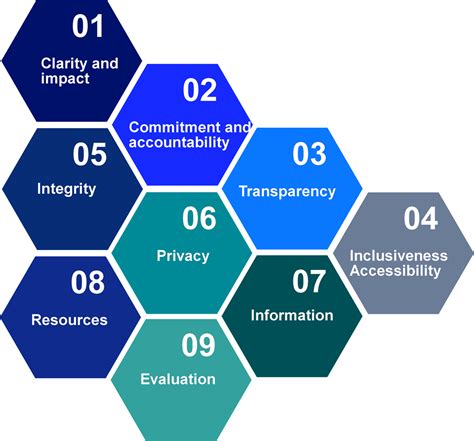For remote workers seeking to expand their career options, real estate offers a dynamic and lucrative path. Whether you’re interested in buying, selling, or managing properties, obtaining a real estate license opens doors to new opportunities. But where do you start? Finding the right real estate class near you is essential to gaining the knowledge and credentials required for success in this field. This guide explores the importance of real estate education for remote workers, compares in-person and online class options, and provides practical tips for choosing the best program based on your schedule, budget, and career goals.
xipres.xyz invites you to delve into this topic thoroughly.
1. Importance of Real Estate Education for Remote Workers
The rise of remote work has fueled a desire among professionals for flexible career paths that complement their work-from-home lifestyle. Real estate offers a compelling alternative, enabling individuals to work independently while facilitating property transactions, encompassing buying, selling, and leasing. However, achieving success in this competitive industry necessitates a robust educational foundation.
Remote workers can gain the vital knowledge and skills necessary to understand the complexities of real estate through dedicated education. This training covers essential areas such as property laws, market analysis, contract negotiation, and ethical practices. A comprehensive real estate course not only prepares students for licensing exams but also provides practical insights into the daily tasks of a real estate professional.
Remote workers find in real estate a perfect combination of flexibility and autonomy, making it a prime career path for those seeking to expand their skills or embark on a new professional journey. Real estate education equips them with the knowledge and credibility to operate confidently across diverse markets. This education also fosters valuable industry connections, keeps them abreast of market trends, and ensures they remain competitive in a dynamic field. By investing in real estate education, remote workers gain control over their career development while embracing the advantages of a flexible, location-independent lifestyle.

2. Overview of Local Real Estate Class Options
A successful real estate career hinges on acquiring the necessary knowledge and skills. Remote workers enjoy a diverse range of local real estate class options, catering to various learning styles and schedules. In-person classes, offered at community colleges, real estate schools, and adult education centers, provide the benefit of direct interaction with instructors and fellow students. These courses often incorporate hands-on training and networking opportunities, which can be incredibly valuable when embarking on a real estate career.
For those seeking flexibility, online real estate classes are widely available, offering an ideal solution for remote workers. These courses allow students to learn at their own pace, comfortably from home. This option proves particularly beneficial for individuals juggling real estate education with existing work or personal commitments. Many online programs incorporate live webinars or virtual workshops, providing a balance between self-directed learning and real-time instruction.
Furthermore, hybrid options blend in-person and online learning, providing a balanced approach for those seeking flexibility while still enjoying the advantages of occasional face-to-face interaction. With a diverse range of local real estate class formats available, remote workers can select the program that aligns best with their learning preferences, schedule, and career aspirations, guaranteeing a seamless journey towards real estate achievement.

3. Benefits of Attending In-Person vs. Online Classes
The decision between in-person and online real estate classes hinges on your individual learning preferences and time constraints. Both options present distinct advantages, making it crucial to carefully evaluate their respective benefits before making a choice.
In-person classes offer a structured learning environment where students can benefit from direct interaction. This face-to-face engagement allows for real-time questioning, participation in group discussions, and networking with instructors and peers. This immediate interaction can be especially valuable when navigating complex subjects like real estate law or contract negotiations. Moreover, attending in-person classes often cultivates strong relationships with local professionals, potentially leading to future employment opportunities.
Conversely, online classes provide unparalleled flexibility, enabling remote learners to study at their own pace and from any location. This is particularly advantageous for individuals juggling other responsibilities or those who favor a self-directed learning style. Online courses often feature recorded lectures, interactive quizzes, and virtual discussion boards, fostering engagement and a sense of community without requiring physical presence.
In conclusion, both in-person and online real estate courses offer unique advantages. Remote workers should carefully assess their individual learning style, networking aspirations, and time constraints when selecting the format that most effectively complements their professional objectives and personal life.

4. Criteria for Choosing the Right Real Estate Class
Choosing the appropriate real estate course is paramount to a rewarding educational journey. Remote workers should weigh several factors when making their selection. Firstly, evaluate the course content and curriculum to ensure it encompasses essential topics such as real estate law, property management, and contract negotiation. It is also crucial to verify that the program is accredited and recognized by the state, as this is a prerequisite for acquiring a real estate license.
Next, consider the format of the class—whether in-person, online, or hybrid—and choose the one that fits your schedule and learning style. For those with full-time jobs or other commitments, online classes may offer the flexibility needed to balance education with other responsibilities.
It’s also important to look at the credentials of the instructors. Experienced professionals with a background in real estate can provide valuable insights and practical knowledge. Lastly, check for reviews and testimonials from past students to gauge the quality of the program and its success rate in helping students pass the licensing exam.
5. Cost and Financial Aid Information
The cost of real estate classes can vary significantly depending on the format, location, and institution offering the program. In-person classes, offered at community colleges or dedicated real estate schools, generally range from several hundred to a few thousand dollars. Online classes, which often start at a few hundred dollars, can be a more affordable option, particularly for remote workers seeking budget-conscious education.
When budgeting for your real estate education, be sure to include additional expenses like textbooks, study materials, and exam fees. Some programs offer package deals that bundle exam preparation materials, potentially providing greater value.
Don’t let cost deter you from pursuing a career in real estate. Many real estate schools and institutions provide financial aid options such as scholarships, grants, and payment plans to help cover tuition expenses. Furthermore, some states and local organizations offer specific financial assistance programs for aspiring real estate professionals. Before enrolling, it’s essential to explore these financial aid opportunities to ensure your real estate education is a financially sound investment in your future career.
6. Schedule Flexibility for Remote Workers
Schedule flexibility is a vital consideration for remote workers pursuing real estate education. Unlike traditional 9-to-5 jobs, remote workers often have variable schedules, making it essential to find classes that accommodate their unique lifestyles. Many educational institutions recognize this need and offer courses designed specifically for those with busy or unpredictable schedules.
Online real estate classes typically provide the greatest flexibility, allowing students to access materials and lectures at their convenience. This format enables remote workers to study during hours that fit their personal and professional commitments, whether early in the morning, late at night, or over the weekend. Additionally, many online programs offer self-paced learning, allowing students to progress through the material at their own speed.
In-person classes, while often more structured, may also provide flexible scheduling options, such as evening or weekend sessions. Remote workers should explore these possibilities when selecting a program to ensure they can effectively balance their education with other responsibilities while still gaining the knowledge necessary for success in the real estate industry.
7. Testimonials and Success Stories from Previous Attendees
Testimonials and success stories from previous attendees can provide valuable insights into the effectiveness of real estate classes and the overall educational experience. Many students share their journeys, highlighting how the knowledge gained from their courses has directly impacted their careers. For instance, one former student may recount how completing an online real estate program allowed them to transition from a corporate job to a successful real estate agent, achieving their first sale within months of obtaining their license.
Others might emphasize the networking opportunities provided by in-person classes, noting that connections made during their studies led to mentorships or job offers in the industry. These personal stories often highlight the supportive environment fostered by instructors and peers, making the learning process more engaging and effective.
When researching local real estate class options, prospective students should seek out reviews and testimonials on the institution’s website or third-party platforms. Hearing about the experiences of others can help remote workers make informed decisions and feel more confident in their choice of educational path, ultimately motivating them to pursue their real estate career goals.
8. Registration Process and Requirements
The registration process for real estate classes varies depending on the institution and course format. Typically, the first step involves researching available options and selecting a program that aligns with your career aspirations and schedule. Most educational institutions offer comprehensive information on their websites about the courses they provide, including prerequisites, fees, and class formats.
After choosing a program, you will usually need to submit an online application. This typically requires providing personal details, educational documentation, and potentially paying a small application fee. Some institutions may additionally require you to take an entrance exam or show a specific level of skill in relevant subjects.
Beyond completing the application, it’s crucial to verify your state’s specific licensing requirements. Some states mandate a certain number of classroom instruction hours before you can take the licensing exam. Following registration, students will receive confirmation and further details regarding class schedules, materials, and any additional orientation sessions. This information will help prepare them for their real estate education journey.
9. Additional Resources and Support Services for Real Estate Students
In addition to formal real estate classes, various resources and support services can enhance the learning experience for remote workers. Many educational institutions provide access to online libraries, databases, and study materials that cover essential topics in real estate, such as market trends, property valuation, and investment strategies. These resources can be invaluable for reinforcing classroom learning and preparing for licensing exams.
Furthermore, numerous real estate schools provide mentorship programs that link students with seasoned industry professionals. This mentorship offers personalized guidance, valuable industry insights, and networking opportunities, all of which are essential for career growth.
Students can also benefit from online forums and discussion groups, where they can interact with peers, ask questions, and share experiences. These platforms create a sense of community and provide additional support during the learning process.
Lastly, career services are often available to help students with job placements, resume writing, and interview preparation. By leveraging these additional resources and support services, remote workers can enhance their education, build essential skills, and increase their chances of success in the competitive real estate market.
In conclusion, pursuing a real estate education offers remote workers valuable opportunities to enhance their careers and adapt to the evolving job market. By exploring various class options, understanding the benefits of in-person versus online learning, and considering factors such as cost and flexibility, individuals can make informed decisions about their education. Additionally, utilizing testimonials, resources, and support services can further enrich the learning experience. With the right preparation and commitment, remote workers can successfully navigate their journey into the real estate industry, opening doors to new possibilities and career growth.
xipres.xyz